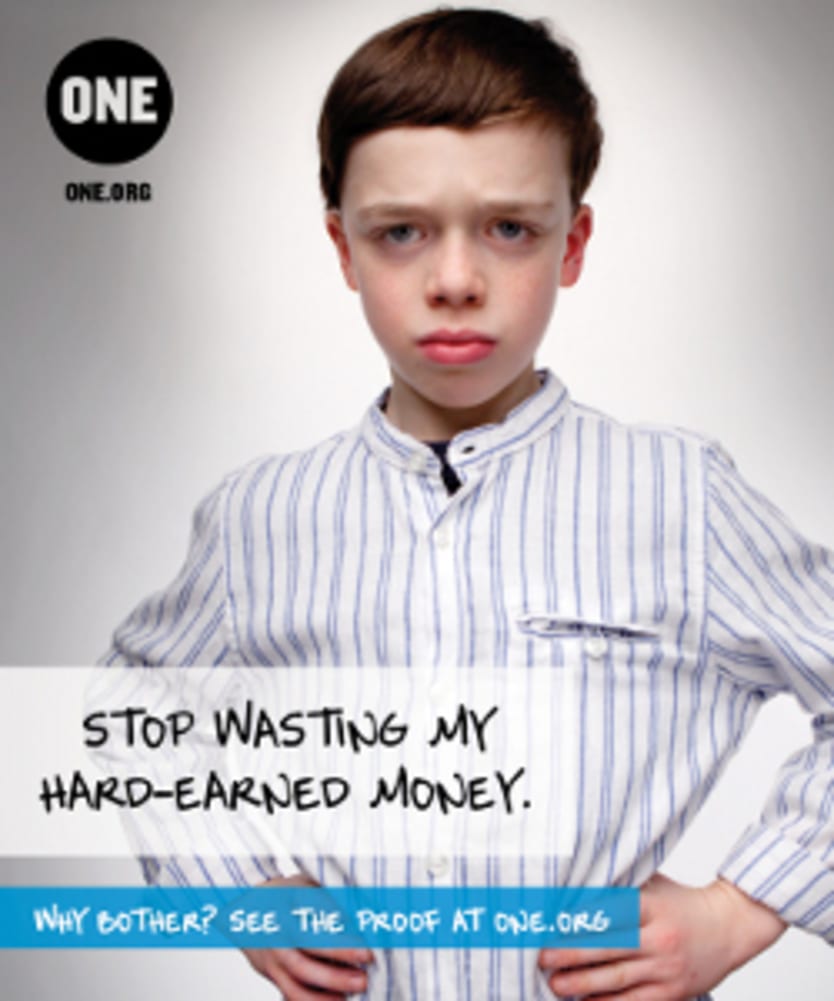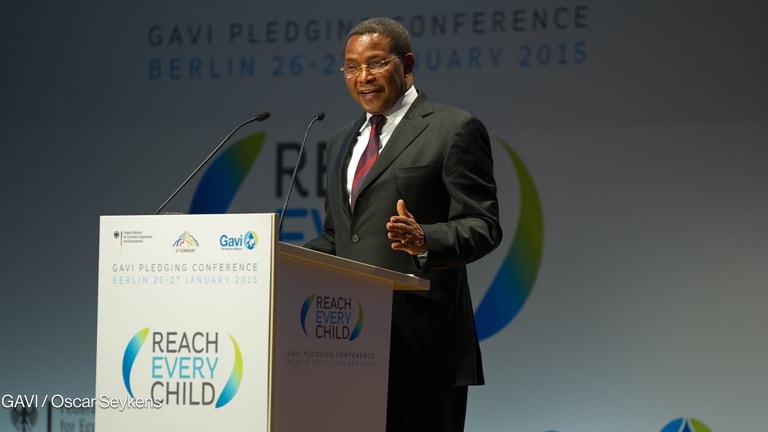
“I’ve got my own problems to worry about,” deadpans a brown-haired girl with a U.S. accent, looking straight into the camera. Her words kick off the ONE Campaign’s clever new Why Bother public service announcement. The video is part of the advocacy group’s global vaccine campaign launched last week.
There may be a few good reasons for the aid community to pay attention as this campaign unfolds. One of them is to see whether a highly focused grassroots campaign like ONE’s can help raise significant funds for development aid in a highly austere budget climate.
ONE’s message is simple: Saving children’s lives is both affordable and achievable using vaccines. Yet ONE’s objective may not be so simple at all: for U.S. President Barack Obama to fund, via the Global Alliance for Vaccines and Immunizations, “two proven new vaccines against pneumonia and diarrhea, two leading causes of death for children in poor countries.”
GAVI hopes to raise $3.7 billion at its June 13 donor pledging conference in London to scale up immunization programs between 2011 and 2015, bringing the fund’s total budget for that period to $6.8 billion. As of July 2010, the United States had contributed $569 million to the fund – less than the United Kingdom ($3.4 billion), France ($1.8 billion), Bill & Melinda Gates Foundation ($1.6 billion) and Italy ($1.2 billion).
Pneumonia and diarrhea cause approximately one out of three child deaths each year in the developing world, according to ONE. This statistic, in ONE’s rhetoric, speaks not to a set of intractable, overly complex and unsolvable issues. Instead, ONE says there is a proven way to save the lives of 4 million children by 2015.
Proper GAVI funding would help immunize:
90 million children with the pneumococcal vaccine (to fight against pneumonia).
53 million children with the rotavirus vaccines (to fight against diarrhea).
230 million children against the five deadly diseases covered by the pentavalent vaccine.
ONE partnered with the Gates Foundation last year on the Living Proof Project, which uses a similar approach of highlighting “what works” as a way of incentivizing and mobilizing the public to pay attention to global health issues. The Living Proof initiative cites: Measles deaths worldwide fell 78 percent between 2000 and 2008 from an estimated 740,000 to 164,000 because of vaccination programs; and 98 million fewer people went hungry in 2010 compared with 2009 due in part to increased investments in agricultural development. You can view additional facts and figures demonstrating measurable outcomes in global health on ONE’s Living Proof website.
Such statistics resonate. And they clearly demonstrate the tremendous, life-saving impact foreign aid can have.
These days, of course, even previously “untouchable” domestic programs are on the chopping block. In the United States, many conservative lawmakers want to cut foreign assistance or eliminate the U.S. Agency for International Development altogether. According to a recent Gallup Poll, 59 percent of Americans supported cutting foreign aid. So the focus of aid advocates on “what works” – illustrated by the ONE Campaign’s new vaccine campaign – is in line with an increasing urgency for donors to showcase the highest-possible return on investment of taxpayer money.
It remains to be seen what impact the ONE vaccine initiative will make; we will know more in June. Regardless, ONE will have demonstrated to its 2 million members (and perhaps their friends and family) that vaccines are a life-saving and cost-effective global health solution that is worth investing in.








